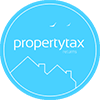Frequently Asked Questions
What can I claim
Capital or private expenses can’t be deducted from your rental income. Capital expenses are costs you incur to buy or increase the value of a capital asset.
The following expenses can be deducted from your rental income:
- Rates and insurance
- Interest paid on money borrowed to finance your property
- Agents fees and commission relating to the rental of the property
- Repairs and maintenance (except if they substantially improve the property)
- Motor vehicle and travel expenses
- Legal fees for arranging the mortgage or finance to buy the property
- Legal fees for buying and selling a property can be deducted. This is provided your total legal expenses for the income year, including the fees associated with buying and selling a property, are equal to or less than $10,000.
- Mortgage repayment insurance
- Accounting fees for the preparation of accounts (We will add this in)
What can’t I claim
Capital or private expenses can’t be deducted from your rental income. Capital expenses are costs you incur to buy or increase the value of a capital asset. Private expenses are incurred for your own benefit and are not connected with producing taxable income.
The following are non-deductible expenses:
- The purchase price of a rental property
- The capital part of any mortgage repayment(s)
- Interest on money which you borrow for some purpose other than financing the rental property, even if you use the rental property to secure such a loan
- Any repairs and maintenance that go beyond replacement and are in fact improvements to the property
- Real estate agent’s fees incurred as part of buying or selling the property
- The cost of making any additions or improvements to the property (Capital Improvements).
- Depreciation on the buildings from the 2011-2012 income year.
Tax Facts
GST on Boarding House Operations
The supply of residential accommodation in a dwelling is exempt from GST. However, accommodation in an commercial residential dwelling such as a boarding house may include GST.
If you operate a boarding house, the GST on the accommodation is calculated in two different ways:
- Charge GST on the full value of accommodation for the first four weeks’ stay;
- After four weeks, charge GST only on 60% of the value of the domestic goods or services.
Four-week rule for residential establishments such as boarding houses.
If at the start if the stay, there is an agreement that the stay is for more than four weeks, GST must be charged on 60% of the value of domestic goods or services from the start, not after 4 weeks.
Offshore Properties
If you’re a New Zealand tax resident your worldwide income includes any rental income from properties in other countries. You will be able to claim deductions for expenses that relate to the rental income received offshore and you may also be able to claim a credit for any tax paid offshore on the rental income received.
Income from renting out property offshore is liable for income tax in New Zealand; therefore New Zealand tax residents must include this income in their tax return. This includes income from renting out land or buildings or income earned from having private boarders or flatmates living in your offshore property.
If you have an offshore rental property, please refer to our overseas property page for more information.
Tax Resources
Mixed Use Holiday Homes
If you have a mixed-use asset, that is an asset that is used for both private use and income earning use and it is also unused for 62 days or more in the tax year then it will be subject to the new rules. In a property taxation context these rules clearly apply to holiday homes, however there is an exemption for holiday homes that are used for long-term rental purposes.
What can I claim?
The expenses you can claim in relation to a holiday home have now changed and fall into three categories, fully deductible, apportioned expenses and non-deductible.
Fully Deductible
Expenses, which are incurred solely in relation to the income earning activity of the asset are still fully deductible, such as advertising for tenants for your holiday home.
Apportioned Expenses
If the expenditure relates to both income earning use and private use, it must be apportioned based on the actual time that the asset is used for income earning activities versus the time that it is used privately. In the case of holiday homes, this would be the number of days that the holiday home was rented to third parties at market rates.
In addition, if your holiday home does not earn gross income of at least 2% of it’s ratable value, you may not be able to have a deduction straightaway, instead you will be required to ‘quarantine’ the excess expenditure and carry it forward to a future year.
Non-Deductible
Expenditure that relates solely to private use of the asset is not deductible and can include things such as costs related to storing personal assets at the holiday home or local club memberships.
